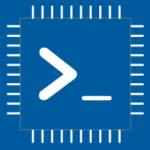Advertisement
Not a member of Pastebin yet?
Sign Up,
it unlocks many cool features!
- /********* Pleasedontcode.com **********
- Pleasedontcode thanks you for automatic code generation! Enjoy your code!
- - Terms and Conditions:
- You have a non-exclusive, revocable, worldwide, royalty-free license
- for personal and commercial use. Attribution is optional; modifications
- are allowed, but you're responsible for code maintenance. We're not
- liable for any loss or damage. For full terms,
- please visit pleasedontcode.com/termsandconditions.
- - Project: Audio Control
- - Source Code NOT compiled for: ESP32 DevKit V1
- - Source Code created on: 2024-11-01 16:35:40
- ********* Pleasedontcode.com **********/
- /****** SYSTEM REQUIREMENTS *****/
- /****** SYSTEM REQUIREMENT 1 *****/
- /* the robot I talked with. so all I need is to talk */
- /* with the ai from the microphone and listen to the */
- /* answer from the speaker so I have > breadboard and */
- /* esp32 and wire and microphone and speaker and */
- /****** END SYSTEM REQUIREMENTS *****/
- /****** DEFINITION OF LIBRARIES *****/
- #include <EasyButton.h> //https://github.com/evert-arias/EasyButton
- /****** FUNCTION PROTOTYPES *****/
- void setup(void);
- void loop(void);
- /***** DEFINITION OF DIGITAL INPUT PINS *****/
- const uint8_t speaker_PushButton_PIN_D4 = 4; // Button pin
- const uint8_t microphone_PIN = 34; // Microphone pin (analog input)
- const uint8_t speaker_PIN = 25; // Speaker pin (digital output)
- /****** DEFINITION OF LIBRARIES CLASS INSTANCES*****/
- // Instance of the button with the defined pin and default parameters
- EasyButton button(speaker_PushButton_PIN_D4); // Initializing EasyButton object
- void setup(void)
- {
- // put your setup code here, to run once:
- Serial.begin(115200); // Initialize Serial for debugging purposes
- Serial.println(); // Print a new line
- Serial.println(">>> EasyButton example <<<"); // Print example header
- button.begin(); // Initialize the button
- button.onPressed([]() { // Define the callback for button press
- Serial.println("Button pressed"); // Print message on button press
- // Here you can add code to handle microphone input and speaker output
- // For example, read from the microphone and play a sound through the speaker
- });
- // Initialize microphone and speaker pins
- pinMode(microphone_PIN, INPUT); // Set microphone pin as input
- pinMode(speaker_PIN, OUTPUT); // Set speaker pin as output
- }
- void loop(void)
- {
- // put your main code here, to run repeatedly:
- button.read(); // Continuously read the button state
- // Here you can add code to read from the microphone and control the speaker
- // For example, you could read the microphone value and play a sound based on it
- int micValue = analogRead(microphone_PIN); // Read microphone value
- Serial.print("Microphone Value: "); // Print microphone value
- Serial.println(micValue); // Print the value read from the microphone
- // Add logic to control the speaker based on microphone input
- if (micValue > 1000) { // Example threshold
- digitalWrite(speaker_PIN, HIGH); // Turn on the speaker
- } else {
- digitalWrite(speaker_PIN, LOW); // Turn off the speaker
- }
- }
- /* END CODE */
Advertisement
Add Comment
Please, Sign In to add comment
Advertisement

